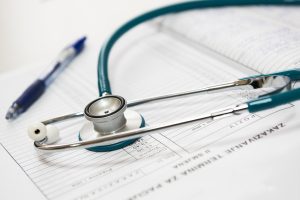Call us on Lindsay Street Medical Centre on 46 329688
or
Highfield’s Medical Centre on 46308800
Call us on Lindsay Street Medical Centre on 46 329688
or
Highfield’s Medical Centre on 46308800
We do not know what causes breast cancer, although we do know that certain risk factors may put you at higher risk of developing it. A person’s age, genetic factors, personal health history, and diet all contribute to breast cancer risk.
Breast cancer ranks second as a cause of cancer death in women (after lung cancer). Today, about 1 in 8 women (12%) will develop breast cancer in her lifetime. The American Cancer Society estimated that in 2017, about 252,710 women will be diagnosed with invasive breast cancer and about 40,610 will die from the disease.
Only 5% to 10% of breast cancers occur in women with a clearly defined genetic predisposition for the disease. The majority of breast cancer cases are “sporadic,” meaning there is no direct family history of the disease. The risk for developing breast cancer increases as a woman ages.
The symptoms of breast cancer include:
Only men have a prostate. It is a small gland that sits below the bladder near the rectum. It surrounds the urethra, the passage in the penis through which urine and semen pass.
The prostate gland is part of the male reproductive system. It produces most of the fluid that makes up semen that enriches sperm. The prostate needs the male hormone testosterone to grow and develop.
The prostate is often described as being the size of a walnut and it is normal for it to grow as men age. Sometimes this can cause problems, such as difficulty urinating. These problems are common in older men and not always symptoms or signs of cancer.
In the early stages, there may be no symptoms. In the later stages, some symptoms of prostate cancer might include:
These symptoms may not mean you have prostate cancer, but if you experience any of them, go and see your doctor.
Factors that are most strongly linked to an increased chance of developing prostate cancer:
Factors that are most strongly linked to an increased chance of developing prostate cancer:
A doctor will usually do a blood test and/or physical examination to check the health of the prostate.
If your tests show you may be at risk of prostate cancer, the next step is a biopsy. A biopsy is the only way a firm diagnosis of prostate cancer can be made. A urologist removes small samples of tissue from your prostate, using very thin, hollow needles guided by an ultrasound. The prostate is either accessed through the rectum (transrectal) or the perineum (transperineal), which is the area between the anus and the scrotum. A biopsy is usually done as an out-patient procedure and the doctor will likely advise a course of antibiotics afterwards to reduce the chance of infection. The tissue is sent to a pathologist to identify whether the cells are malignant (cancerous) or benign (not cancerous).
There is no evidence that the following protective factors can stop prostate cancer from developing, but they can improve your overall health and possibly reduce the risk of prostate cancer:

Enjoy a wide variety of foods from the five food groups everyday. Healthy eating is easy! For more information visit: www.eatforhealth.gov.au
New and Existing patient s are encouraged to use our online booking system for routine or standard appointments. If you can’t see your preferred GP online, have a questions or need to make a non standard booking with your Doctor and a fantastic Practice Nurse no problem give one of the friendly receptionists a call to help you Lindsay Street Medical Centre or Highfields District Medical Centre.
s are encouraged to use our online booking system for routine or standard appointments. If you can’t see your preferred GP online, have a questions or need to make a non standard booking with your Doctor and a fantastic Practice Nurse no problem give one of the friendly receptionists a call to help you Lindsay Street Medical Centre or Highfields District Medical Centre.

Remember vaccination is often your best defence. Many diseases are covered in your routine childhood immunisations but adults may require boosters.
Specialised travel vaccines are kept in stock at Travel Clinics Australia clinics nationwide.
Your travel doctor is the best person to advise on what is best for your specific needs.
A travel first aid kit.
Ensure you have enough of your regular medications and carry these in your hand luggage in case your checked baggage is lost or delayed.
These medications should be authorised for use by your doctor as in certain countries restrictions may apply. The Travellers Pocket Medical Guide given to each traveller at the travel clinic has a customised section for this purpose.
Scan or photograph your important documents and keep them on your smart phone.
Download the Travel Clinics Australia Vaccine App to keep a handy record of your vaccines and access detailed travel health issues quickly and easily.
Check Visa requirements.
Be aware of different climates and pack accordingly, keep up fluids in hot climates.
Talk to your doctor about minimising the risk of DVT on long flights.
Be prepared for culture shock. You may experience different practices, attitudes and poverty that can be confronting.
Don’t leave home without Travel Insurance, medical treatment overseas can be very expensive!
Register your trip on www.smartraveller.gov.au and check their warnings.